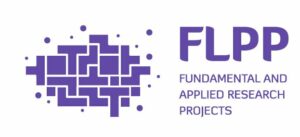
Project Title: The role of PML in the ALT-coupled senescence-meiosis-stemness pathway involved in tumour cell resistance to targeted and genotoxic treatment
Project No: lzp-2022/1-0114
Period: 1 January 2023 – 31 December 2025
Project costs: 300 000, 00 EUR
Principle Investigator: Dr.biol. Kristīne Salmiņa
Summary
Oncogene-drug-induced senescence associated with mitotic slippage (MS), reprogramming and transient polyploidy is known as a prerequisite for the recovery of resistant cancer cells. Ectopic expression of cancer-testis antigens (CTA) and meiotic proteins correlates with aggressiveness and resistance to targeted and genotoxic treatments but the mechanisms are unclear. The project hypothesis: activation of senescence by treatment of tumour cells induces CTA and meiosis-associated gene transcription networks, along with PML-based alternative telomere lengthening (ALT). ALT-PML bodies are sites of the meiotic recombination pathway, potentially providing effective telomere repair and telomerase re-establishment, enabling cancer cell survival. The experiments will be carried out on breast cancer and melanoma cell lines after targeted or genotoxic treatments. Senescence-meiosis-stemness (SMS) (p16INK4a, PML, SPO11, DMC1, REC8, OCT4, etc.) and telomerase-ALT components (TERT, TRF2, RAD51) during MS in PML bodies will be studied. The meiotic recombination protein SPO11 and master germline regulator PRAME in telomerase-ALT transition and cancer resistance will be investigated. To reveal potential therapeutic targets, bioinformatic analysis (identification of differentially expressed SMS-related genes and their interaction networks) will be performed on cell line and patient transcriptome samples with the goal of detecting the hub genes of integrated SMS networks in ALT-telomere repair.
Information published 02.01.2023.

